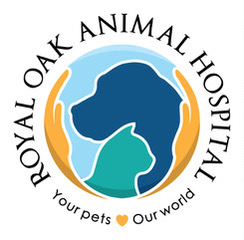Library
-
A successful road trip with a cat begins long before the day of travel. Teach your cat that the carrier is a great, everyday place to hang out. Take your cat's medical documents with you and be sure your cat wears identification during travel. Take a small supply of the litter your cat's used to and bring along water from home. Consult your veterinarian to create the best travel plan for your cat if she does not travel well.
-
Do you have medications stored in the bathroom cabinet, kitchen drawer, and pantry shelf? Are random bottles haphazardly tossed into the “pharmacy”? Medications are meant to help us and our pets, but they can do more harm than good if stored or administered incorrectly. You can protect your family and pets by safely handling and disposing of medications.
-
Several changes occur in the aging cat; they often progress slowly, so it is essential to have your senior cat examined by a veterinarian twice yearly. This is important so that if your cat develops a disease, it can be recognized and treated as early as possible, thereby maintaining her quality of life for as long as possible.
-
Socialization is the process during which the kitten becomes familiar with people, other animals, and many aspects of their environment. Kittens are primed for socialization when they are between two and seven weeks old. As soon as kittens have settled into their new home, they can begin gentle exposures to a wide range of stimuli that they may encounter as adults.
-
There are lots of ways to find adoptable pets, and large or small, local or national, online resources and shelters have the same goal: match available pets with the most suitable homes. Social media has helped find homes for countless dogs and cats. Well-developed websites that are updated frequently and actively used by rescue groups and humane societies make shopping for a pet online a fruitful experience. Shelters are another great option if you want to see many pets at one time.
-
Spaying is the common term for the surgical procedure known as an ovariohysterectomy. In this procedure, the ovaries and uterus are removed to sterilize a female cat. This operation requires a general anesthetic and complications are rare. Spaying is recommended to prevent ovarian and uterine cancer, prevent unwanted pregnancy, and reduce the risk of mammary cancer and pyometra.
-
Strokes are rare in cats. Some causes include a blood clot such as a thrombus or embolus that lodges in a cerebral blood vessel, cerebral bleeding from trauma, or a blood clotting disorder; however, the cause is often unknown. Signs of a stroke are variable depending on the regions of the brain affected and the degree and duration of blood and oxygen deprivation. Magnetic resonance imaging is the ideal diagnostic test for diagnosing a stroke. Treatment is complex and there is no guarantee of complete success. Your veterinarian will help you assess progress and plan remedial action.
-
Many pets initially resist having their claws trimmed. This is partly because their paws are sensitive and partly because they are uncomfortable being restrained for the procedure. By taking the time to do some gentle, systematic training and conditioning, you can teach your pet to relax and accept nail trims as part of their regular health maintenance program.
-
Many pets are sensitive to being restrained for grooming. With slow progress and positive rewards, your pet can learn to accept or even enjoy having their teeth cleaned.
-
Summertime is filled with lots of fun, but also follies. Besides the common threats of heat stroke and dehydration, pet owners need to be aware of the potential dangers associated with summer activities. Cookout fires can be dangerous and party menus often contain foods that can be harmful to pets. Outdoor celebrations that involve glow sticks or balloons can be threats as well. A quick review of possible follies will ensure a fun, safe summer with pets.


